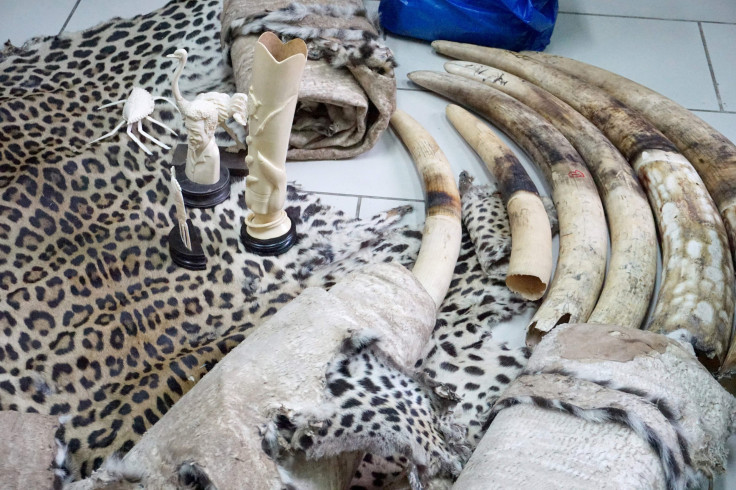Who Is Esmond Bradley-Martin? Leading Ivory Investigator Killed In Kenya

Esmond Bradley-Martin, one of the world’s leading ivory trade investigators, was found dead Sunday in Nairobi, Kenya.
According to a report by The Telegraph, Bradley-Martin, 75, who recently came back from a research tour to Burma, was discovered by his wife, Chryssee Martin — with a stab wound in the neck at their residence in Langata.
Bradley-Martin, who was a pivotal figure in the fight against illegal trading of ivory and rhino horns, was in the middle of discovering rhino and ivory markets and traffickers along with his wife and other colleagues. The investigating officers working on the case suspect the incident to be a case of botched robbery, the report stated.
According to a report by The Star, Nairobi Criminal Investigation Officer, Nicolas Ireri Kamwende stated that the investigators didn’t identify the perpetrators of the crime as of yet.
Chryssee who reported the death stated she discovered Bradley-Martin’s body after coming back from taking a walk at around 4 p.m. EAT (9 a.m. EST).
Regarding the ongoing investigation, Kamwende said, “We have already questioned a gardener and a cook who are employed at the home.”
Bradley-Martin was born on April. 17, 1941 in New York City to Esmond Bradley and Edwina Martin. He received her Bachelor of Science degree from the University of Arizona in 1964. He then went on to get a Doctorate in Philosophy in 1970 from the University of Liverpool.
He was also the author of multiple books. Some of his books were “Run Rhino Run,” “Cargoes of the East,” "Zanzibar: Tradition and Revolution,” and “The International Trade in Rhinoceros Products.”
Bradley-Martin had recently co-authored a study along with colleague Lucy Vigne, which dealt with a decrease in the ivory trade in China. The study titled, “Decline in the Legal Ivory Trade in China in Anticipation of a Ban," was published in 2017 by Save the Elephants, a United Kingdom charity organization based in Kenya.
The 88-page report stated that 130 licensed outlets in China were slowly bringing down the amount of ivory products for display and for sale. It also said the outlets were also decreasing the prices in order to improve the sale of the products.
Save the Rhino, an UK-based conservation charity organization, tweeted offering condolences to Bradley-Martin.
Shocking & sad news: Esmond Bradley Martin, investigator into the illegal trade in elephant ivory & rhino horn, found murdered in his home in Nairobi. Our thoughts are with his wife Chryssee https://t.co/YzfRAIkWcb pic.twitter.com/BeYYsFzVfd
— Save the Rhino International (@savetherhino) February 5, 2018
Bradley-Martin, who was a one-time United Nations special envoy for rhino conservation, first landed in East Africa in the 1970s when there were numerous incidents of elephant slaughter in the region. The period was also followed by rhino slaughter in the 1980s, the report said.
Dr. Paula Kahumbu, an elephant expert and CEO of WildlifeDirect, a Kenya and United States registered charity organization, in a three-part tweet described her feelings when she heard about Bradley-Martin's death.
Kahumbu said, “It is with deep shock & horror that we learn this morning of the death of long time conservationist, Esmond Bradley Martin, whom police say died in suspicious circumstances at his home in Karen, Nairobi. Esmond led investigations into ivory & rhino horn trafficking.”
She continued, “Esmond was at the forefront of exposing the scale of ivory markets in USA, Congo, Nigeria, Angola, China, Hong Kong, Vietnam, Laos and recently Myanmar. He always collaborated with Save the Elephants and worked with many of us generously sharing his findings & views. ”
“Esmond was a global authority on ivory and rhino horn trafficking. We send our deepest condolences to his wife. RIP Esmond, pachyderms have lost a great champion,” she added.
© Copyright IBTimes 2024. All rights reserved.






















